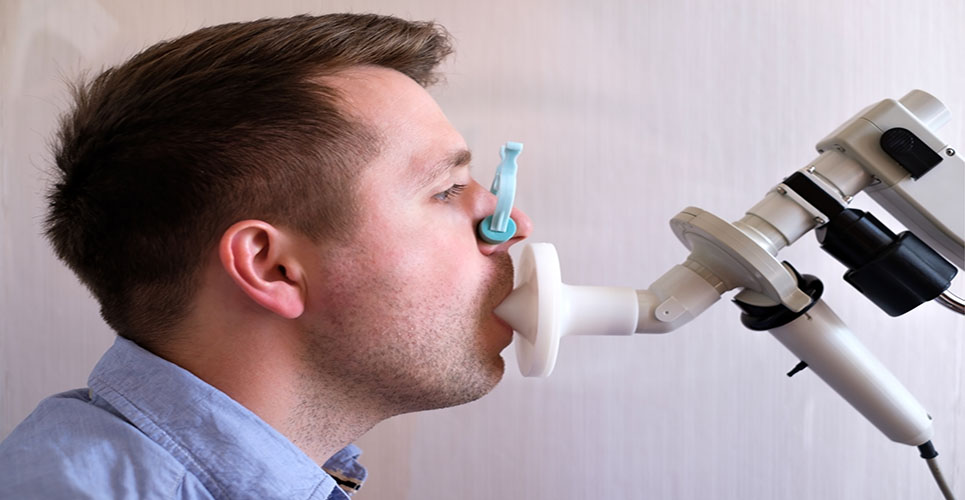teaser
Boehringer Ingelheim has announced that patients and physicians may have several innovative respiratory treatments available in the coming years. At its 3rd International Research & Development press conference, Boehringer Ingelheim unveiled a pipeline of unique asthma, chronic obstructive pulmonary disease (COPD), idiopathic pulmonary fibrosis (IPF) and lung cancer compounds that builds on the company’s vast respiratory experience over many decades.
One of the best explored and profiled areas in Respiratory R&D at Boehringer Ingelheim is bronchodilation, the key treatment target in COPD. The biggest research success in this area to date is tiotropium, which has been marketed for ten years under the brand name Spiriva®. Tiotropium was the first inhaled once-daily anticholinergic (LAMA) to provide 24-hour bronchodilation in COPD and with 25 million patient years’ experience, it is the most prescribed COPD therapy worldwide.The company’s research strategy steps forward to maintain its leading position in bronchodilation research with an additional focus towards the understanding of chronic respiratory disease progression and the subsequent long-term consequences of the disease.
At the press conference, Prof Andreas Barner, Chairman of the Board of Managing Directors at Boehringer Ingelheim, and scientist within Boehringer Ingelheim’s own R&D division in Biberach, Germany revealed details of the company’s extensive overall pipeline.
In the respiratory area, Boehringer Ingelheim’s promising pipeline includes seven early clinical stage compounds (phase I and II) and a range of late-stage compounds (phase III and registration). The late stage respiratory compounds include:
- Olodaterol*, a once-daily, long-acting β2 agonist (LABA), for the treatment of chronic obstructive pulmonary disease (COPD) that was developed as an ideal combination partner for tiotropium and intended for the maintenance treatment of COPD
- A fixed dose combination of this new LABA with the long-acting, once-daily muscarinic antagonist (LAMA) tiotropium
- An additional advanced compound, nintedanib* for the treatment of idiopathic pulmonary fibrosis and the ErbB-Family blocker afatinib* for the treatment of non-small cell lung cancer (NSCLC) patients harbouring EGFR mutations.
Respiratory disease research and development at Boehringer Ingelheim will further focus on:
- Exacerbation prevention and resolution in asthma and COPD
- Disease modification and airway re-modeling e.g. mucus production
- Inflammatory pathways in asthma and severe COPD
- Lung tissue damage and lung fibrosis
- Lung cancer.
Professor Andreas Barner highlighted the company’s commitment to innovative research and development programmes despite additional complexity, increased cost, and regulatory or market access hurdles. He emphasised that the delivery of innovative new medicines demands the highest quality in clinical trials and in addition proof of affordability for society.
“In the past decade Boehringer Ingelheim has conducted 1,348 studies in 111 countries across all our therapeutic areas within our own global Research and Development organisation with 7,000 colleagues in R&D and Medicine. Challenging times lie ahead in the development of breakthrough innovations for clinical and medical research. We have therefore pioneered in many therapeutic areas to partner with academic institutions, universities and research consortia for continued success,” Professor Barner said.
Professor Klaus Dugi, Corporate Senior Vice President Medicine at Boehringer Ingelheim emphasised,
“We are ‘walking an extra mile’ at Boehringer Ingelheim with regard to many aspects of clinical trials. We introduce thorough testing methods often many years prior to such methodology being requested by guidelines. We also heavily invest in landmark studies to assess ‘real world conditions’ in which patients receive additional investigational compounds on top of their standard medication. Clearly this may make outstanding clinical trial results more difficult to achieve, in contrast to comparing new compounds with placebo only. We are proud that we can nonetheless demonstrate our results translate into patient benefit.”
* Olodaterol, afatinib and nintedanib are investigational compounds. Their safety and efficacy have not yet been fully established.
